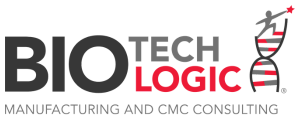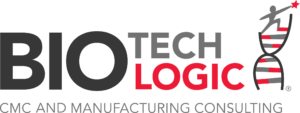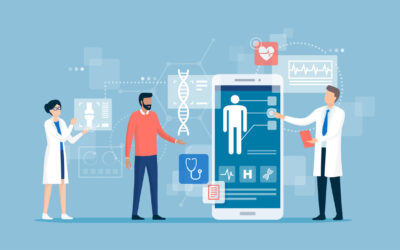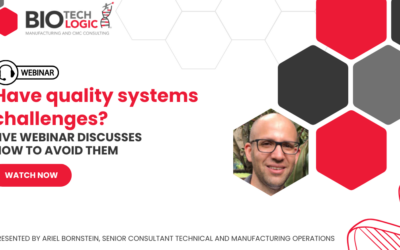
Tonia Becker, Life Sciences Editor, Macon Raine talks with BioTechLogic’s Dr. Eileen Choi
How is the COVID-19 pandemic affecting the global biopharmaceutical market? To get at least some perspective on this question, there is no better place to turn to than BioTechLogic’s team of biopharmaceutical consultants, who are working with many companies in the industry to help speed the path to market.
Events are changing quickly as some states are reopening; however, already, much has been learned from this first wave that can be applied to the future.
I had the opportunity to speak with Dr. Eileen Choi, BioTechLogic senior consultant, Technical Operations, based in Boca Raton, Florida. She does process development and validation work for some monoclonal antibody products and many plasma-related products. She is bilingual in Korean and English and regularly works to help Korean companies bring products to the US market.
How is the COVID-19 pandemic changing your clients’ priorities and projects?
Eileen: COVID-19 is changing many of the questions my clients are asking. For example, one of my clients in South Korea is a large company that produces recombinant proteins, diagnostic testing products, plasma proteins, and a wide range of additional products. This company—and a lot of other companies in South Korea—is making COVID-19 diagnostic and/or treatment products such as COVID-19 testing kits and convalescent plasma.
Numerous Korean companies are asking how they can get quick approval from the FDA to sell their kits in the United States. Testing kits and related supplies have been in such short supply in the US, yet there is extensive production capability in South Korea among both large and small companies.
The US federal government is now welcoming testing kits from global manufacturers, an Emergency Use Authorization (EUA) has been enacted—a new approval route that is used in wartime and other dire circumstances. There were a few Korean companies that got approval very quickly, and they have been shipping kits here. But many other companies are waiting to supply us.
This said, I do think there is a bit of a risk here. Diagnostic testing is not my area of expertise, so I don’t want to comment too much. However, these kits are often not fully validated using the same standards we typically apply in the United States, Europe, and numerous other global markets. Yet these kits are being sold in these regions.
I don’t doubt their science because I think the science is there; however, the GMP validation is not necessarily there due to lack of time—I know many scientists are not fully confident in the data. My advice to Korean companies is to at least add controls and ensure the kits are giving fewer false negatives or false positives. Additionally, requiring multiple tests may have to be built into protocols to increase confidence in the results.
Interestingly, one of the Korean companies I’m working with, as well as many companies in the United States and around the world, are working on plasma treatments because plasma, of course, can be used to treat immunodeficient patients. Because we now have some recovered COVID-19 patients, we have begun using donated plasma that contains antibodies from these patients to fight COVID-19 (convalescent plasma). Researchers are also working on monoclonal antibodies specific to COVID-19. There were a number of products in the development pipeline that are now emerging very quickly to help us to fight this pandemic.
Numerous leaders are pushing for a rapid increase in COVID-19 antibody testing. What are your thoughts on this?
Eileen: I think that antibody testing might prove to be even more challenging than diagnostic testing. I see it more as supplemental testing. There are many different coronaviruses, so you really must be sure you are identifying and detecting the antigens that are unique to COVID-19.
Are you concerned about your clients and the industry at large being able to keep their projects on track?
Eileen: Some of the projects I am working on were a bit delayed when South Korea was at its peak. Like the United States now, many people were working from home. But amazingly, they all returned to work pretty quickly because the nation was able to control the spread of the virus effectively, and things seem to be pretty much back to normal there.
The only difference in my work with my Korean clients is that I was supposed to go there for a visit this spring, which is obviously not going to happen. Like everyone else, we are relying on video conferences and emails.
Here in the United States, some companies are opting to postpone FDA submissions. Face-to-face meetings with the FDA will not happen for an unknown duration, so we are unsure to what extent new meetings and review procedures will slow down the overall approval processes.
Also, I’m concerned about dwindling funding for a lot of biopharmaceutical companies, particularly smaller companies. Investment money is dwindling because these companies are having to postpone some clinical trials. They cannot recruit patients and start their trials as scheduled which will push back projected market entry dates.
Another area of potential slowdown is that contract organizations are prioritizing COVID-19-related work. If non-COVID development teams are employing contract manufacturing or contract testing organizations, they might experience substantial delays. Fortunately, the biopharmaceutical sector is considered an essential business, so everybody is still working. Some are working from home, but many people are still going to work at their respective facilities.
This question is a little off-topic, but South Korea brought the spread of COVID-19 under control very quickly. What do you know about how they approached these efforts, and what might the US learn from their success?
Eileen: I know what they did because I talked to my sister-in-law who lives there every day. Last year, I went back for the first time in more than 22 years. I was shocked by how advanced their technology is—it’s much more sophisticated than in any other country I have visited. South Korea has an excellent internet-based infrastructure; they were already ordering everything online, and they have excellent delivery systems.
Because their internet infrastructure and usage rates are so advanced, they could act very quickly and use technology to track COVID-19 infected people. They launched early widespread testing efforts and did contact tracing for every infected person. Then, they quarantined infected people from their families, and people identified via contact tracing to have been exposed to an infected person were instructed to self-quarantine. Their system is so well structured—it’s truly incredible.
Their tracking systems allow you to open a cell phone app and follow infected people so that you can tell before you go out whether an infected person has frequented a place you plan to visit. To many in the United States, this might seem like an invasion of privacy, but I think there is something to be learned here. To this day, people in South Korea are still checking these apps before they decide to go to specific places.
I know that, in some ways, these efforts are possible because South Korea is a smaller country, and its leadership is centralized. It has one government, unlike the United States, which is working to coordinate 50 states and governors. But affordable, widespread testing and contact tracing have been vital to South Korea’s success.
If your team is challenged by hitting pending deadlines, BioTechLogic’s team of expert, senior-level consultants are happy to work alongside your team to make sure you hit your critical milestones. Feel free to contact us.






